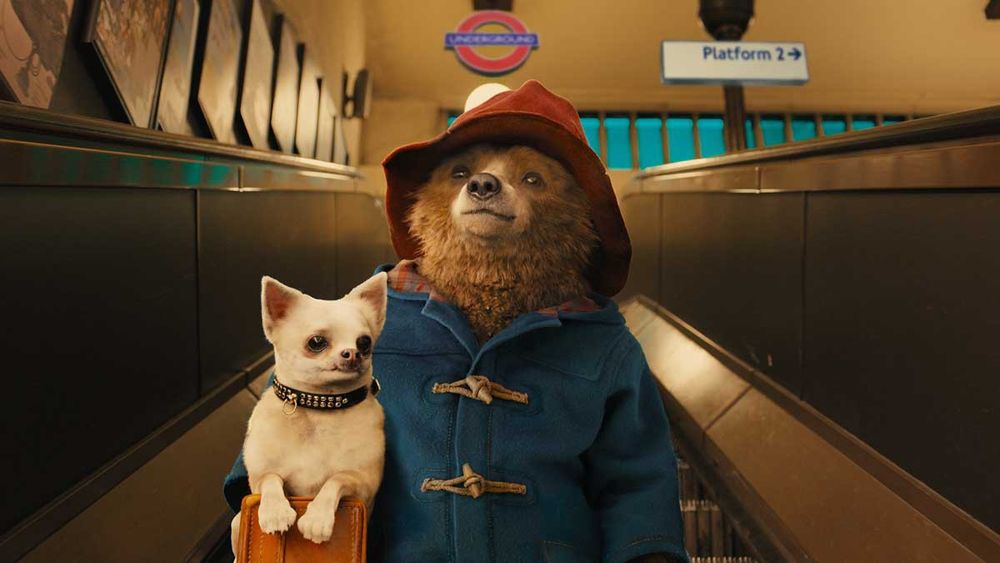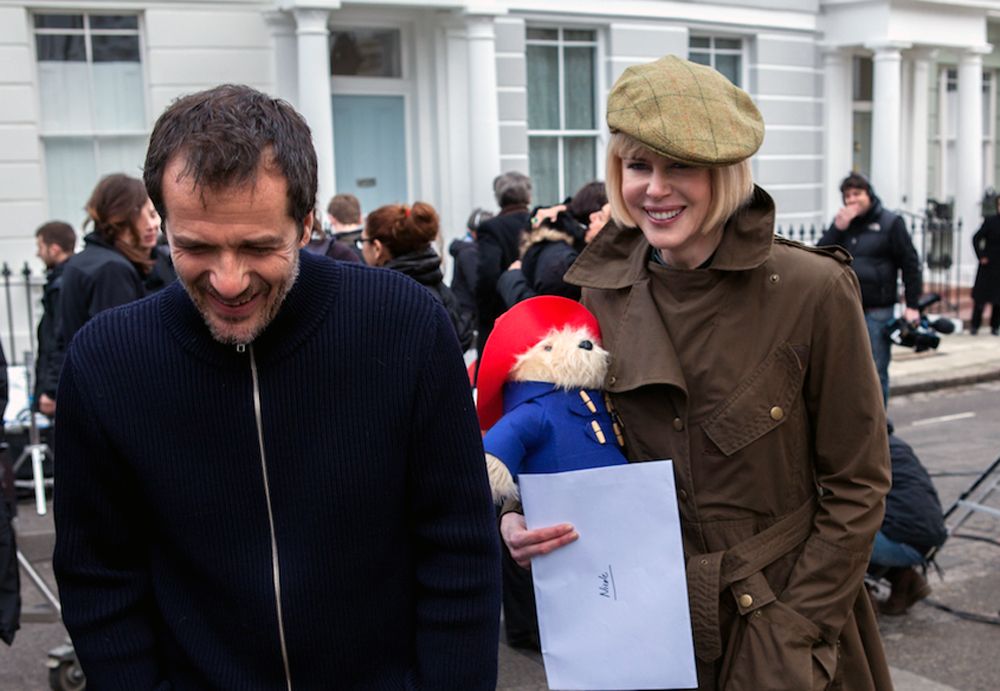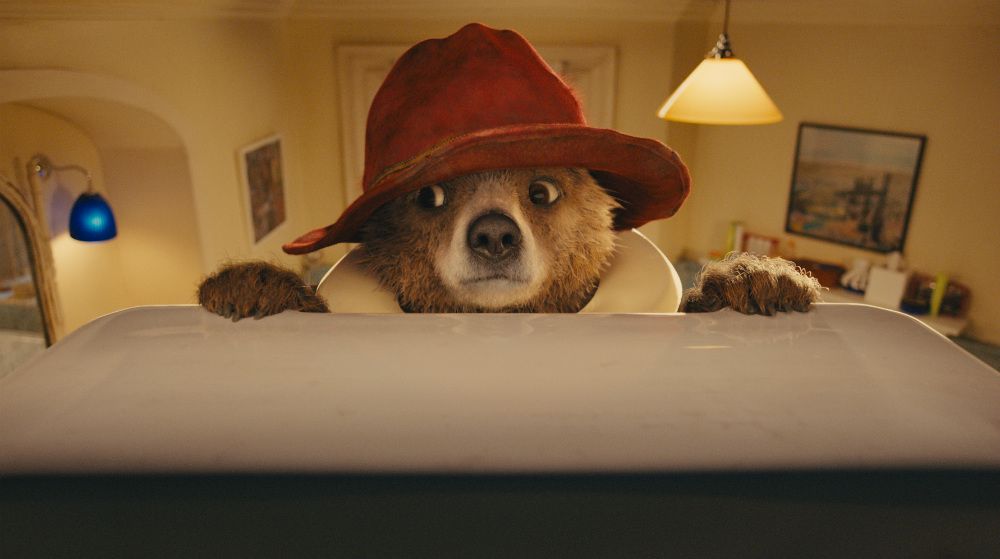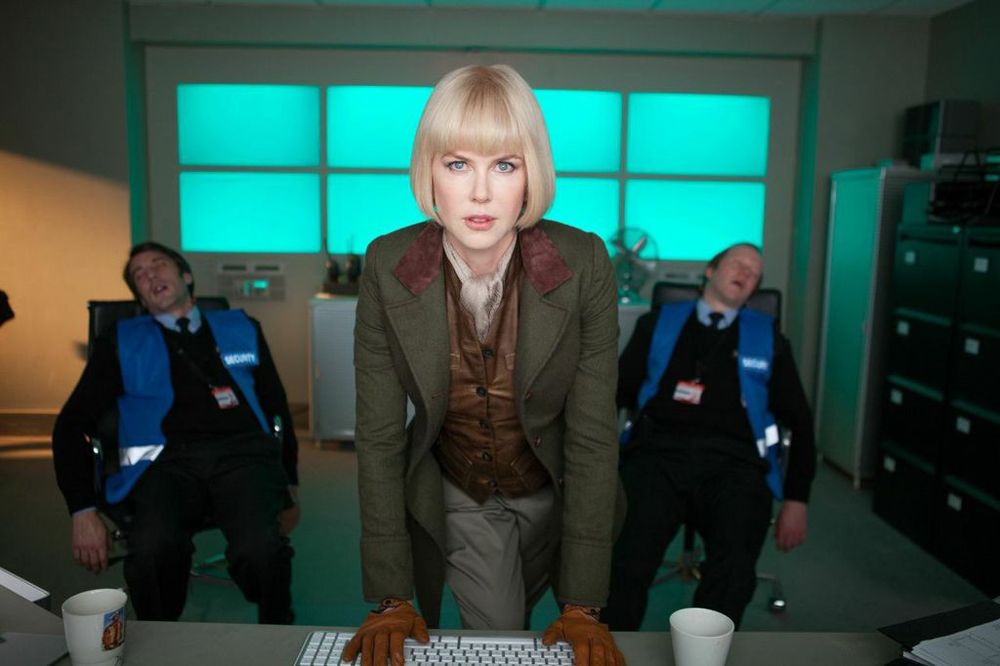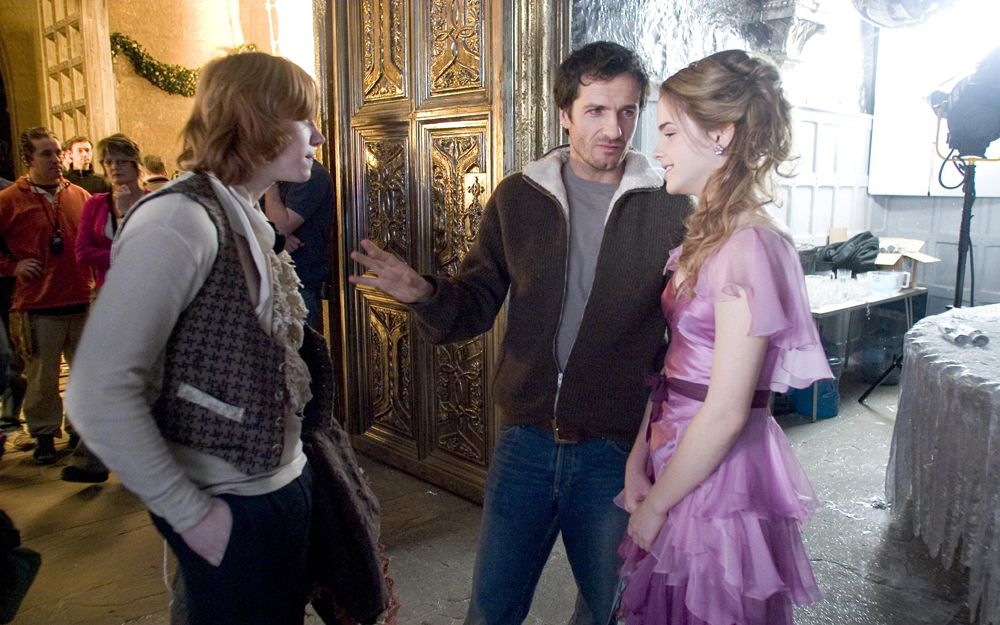From the wizarding world of Harry Potter to the space-bound spectacle of Gravity, producer David Heyman has a proven track record of bringing high-quality adventure to cinematic life. His latest venture, Paddington, straddles the line, taking a very famous bear who made his debut nearly 60 years ago and making him a movie star for the first time.
In a wide-ranging conversation with SPINOFF ONLINE, Heyman reveals how he had almost forgotten about author Michael Bond's well-meaning but frequently out-of-his-element creation from his own childhood, but reconnected with the enduring character as he and the filmmaking team worked out ways to bring Paddington to life in ways that would resonate with all generations. The producer also weighs in on the status of his plans to translate Bill Willingham's epic Vertigo comic Fables into a film franchise, and working on working again with author and now screenwriter J.K. Rowling on the Harry Potter spinoff Fantastic Beasts and Where to Find Them.
Spinoff: Tell me when was that sort of creative "Eureka!" moment with Paddington – when everybody agreed, "OK, we know how we’re going to do it now." After you'd thought about it and thought about it, this was the thing that made it a movie to you.
David Heyman: I suppose it was when [director] Paul King came aboard. Because we had a script, a really good script, by this writer, Hamish McColl. It was really good, but Paul made it his own. I think it’s true of any film: a director is so much the key. And Paul is a writer/director, and he’s a bit like Paddington: He’s got a bit of a belly; he likes his food; he’s very honest and decent and forthright; and he’s got a sense of wonder, which was very important for me with regards to the bear – that sense of generosity of spirit and wonder. I think when he came aboard, and I read his first pass, it really began to take shape.
What attracted you to the idea? It’s always tricky when you take something that’s iconic, especially when people are so invested in their childhood memories of it.
It’s funny. One: it was part of my childhood – but I had forgotten about Paddington, to be honest. And then Rosie Alison, who's executive producer on the project, who works with me, she recommended I reread the books, and I did. They’re funny and tender. For me, the themes that Michael Bond talks about, and that we have in the film of an outsider looking to a place to belong, about the generosity of spirit, the kindness of all strangers, the kindness to strangers. And ultimately, Paddington’s realization that to fit in, he doesn’t, he shouldn’t try and be something other than who he is are all themes that resonate today, and feel to me timely and timeless.
We all feel in our own way like outsiders, and to have the faith to be who we are as opposed to something else in order to fit in is a wonderful message. And actually in this time, in particular, when there is so much pointing of fingers to people who are other, to embrace the other, and to be kind to people who are different, and be kind to strangers, is I think a very positive message to put out into the world.
I feel like this movie’s really representative of something that’s been going on for the past 10 or 15 years: We’re kind of in a golden era of family entertainment, where we’re getting these movies that are great entertainment for children, but also adults can take something out of it – not just be entertained by it but come out of it with something. And I think you’ve been on that forefront with Harry Potter movies, Disney does a lot of stuff in that direction --
I’m a huge fan of Pixar, huge fan of the work that Chris Meledandri is doing over at Illumination. There’s so much great family entertainment today. Disney …
Do you have a philosophy about how you approach projects like this to get that right balance?
Well, I think in some ways, it’s to approach them like dramas: to understand who the characters are, what their goals are, what the adversity they’re facing is, and to not patronize an audience. And so when I say talk about it like a drama, I mean to take the issues and the challenges very seriously and to make the characters very vivid and very real. And to never talk down to an audience. To make films that appeal, as you say, to adults and children alike, so that the children never feel like they’re being looked down on, and the adults go to the cinema and find themes, ideas, and humor, and emotions that resonate with them too. That really is the key, and I do this on every project, which is to keep pushing the envelope as far as one can, to never settle, and to keep pushing, pushing, pushing until there can be no more, until you can’t make it better.
Over the years in the various projects you’ve worked on, you’ve cultivated a very big relationship with a very great pool of talent as far as actors go, especially actors in the U.K. Tell what it’s been like for you to be able to go to really revered actors and let them have fun parts, let them have silly parts.
I think comedy, in particular, is one of the greatest and most difficult things an actor can do. It’s harder than one can possibly imagine. So I think that they always relish the challenge. And I think good actors want good parts. And I think, whether it be Harry Potter or Gravity or Boy in the Striped Pajamas or I Am Legend or Paddington or Light Between Oceans, which is a film that I’ve got coming up, or Testament of Youth, they’re films which have really good roles, where actors can explore things they might not otherwise explore. They can explore thing about themselves, and things that matter to them. When you’re making family films, one of things that often actors don’t get the opportunity to play in roles that their children or grandchildren can see, so they leap at the opportunity.
Do you wonder how people are going to respond when you go to somebody like Nicole Kidman with this villainous part that’s also fun and goofy?
I was pleasantly surprised. I’ve always admired Nicole, and her work is so diverse and varied and she’s a great actress. One of the parts that I’ve always remembered hers was her in To Die For, which was wickedly funny and she was a devilish character, and that felt great for Paddington. Also the pairing of 3-foot 6-inch Paddington with her statuesque frame was wonderful – just what a wonderful contrast! Not sure how we were going to fit them in the frame, but I just love the idea of how intimidating that might be. I love it when she leans over and then just circles him. She’s delicious – she’s so good and deliciously evil.
And yet, at the same time, what I love about her is that she brings that character, Millicent is not just pure evil. She’s dealing with her own issues of her father and the disappointment about her father, and having her father sacrificed her in a way to go to the rainforest to find these bears. And she’s felt compromised. So there’s a reality to her. There’s that wonderful Graham Green quote: “To hate is to lack imagination.” Good characters have demons. And bad characters have virtues. And there’s a reason why people do what they do, and you can see in her performance why she does what she does. I think she’s great.
You mentioned that you had sort of forgotten about Paddington for a period of your life. Do you have, now, a crystal clear memory of what it meant to you as a kid? And of something you wanted to try to capture and translate with this movie?
I think, as a child, I enjoyed him. I think some of the ideas that were within the books were not immediately [grasped] – it wasn’t like I would say, “Ah, this is what it was about.” But in hindsight, I can now look and see how they did in some way affect and influence me. But that whole thing about treating people with respect – those are values that I want my child to have. And I think that my parents, when they gave them to me to read, thought the same thing. At the time, I think they were just fun and funny. Not silly – funny. And I loved the bear.
Now, I realize that they were that, and they were so much more. And I’ve been thinking about this too: In particular in terms, this is a time where film has a real ability to affect and influence people. But I think film as polemic is really dangerous or useless, because ultimately you’re appealing to the converted, for the most part. What’s lovely about this film, I think, is that there is a, very much, message at its heart. It’s that Paddington is an immigrant. Paddington’s someone who is different who comes into this world. And it’s through the kindness of strangers that he finds a place. And I think that’s a political message, with a small p, and I think it’s a powerful and potent message. And it’s a message that I would love my children to hear and the children all over the world to hear. But I think what I like, and the way that Paul’s done it, is it’s a message that is very gently put, but one that is undeniable.
Where are you in your progress with adapting Fables, the comic book series?
Jane Goldman is working on a draft as we speak. Nik Arcel is attached [to direct]. He did a draft, and now he’s supervising Jane, who’s doing a draft. Hoping that it’ll come in and we’ll be able to move to the next stage. All these things always take longer than you want. And “Fables” is not easy, by any means, but I think it’ll be pretty great.
Can you sum up the essence of what you saw in it that made you get excited about translating it into film?
I’m drawn to stories about outsiders, and I think the Fables are outsiders. They’re people torn from the place where they were raised, by The Adversary. They arrive in a New York City-type place, and how we’re approaching is that they’re people who are all separate, and how they ultimately have to form the community in order to survive. They’re all inhabiting their own little universes within this world. But they have to form this community, and that really appealed to me. And I just think the characters are so vivid. And I also think the farm is, again, it’s very human. That’s what I like. It’s a challenging film.
I’m curious about your experience working with J.K Rowling as a screenwriter on the Potter-connected film Fantastic Beasts and Where to Find Them. What’s been the fun discovery of that new relationship with her?
She sure as hell can write screenplays! She’s a writer. What’s been incredible working with her is her tireless imagination, but also her humility. As a novelist, an editor may make suggestions, but especially her with the success she’s had, with this, she brings an incredibly vivid imagination, wonderful characters, and I think it’s going to be amazing. So working with her is like working with a master – but a master with such humility and sense of collaboration. She knows that David Yates is going to direct this film, and she is working with him and Steve Kloves and us all to make it as good as it can be, to shape it to make it the best film that we can. So there’s a real humility there, and at the same time incredible confidence and originality as a screenwriter.
Are you envisioning it tonally, stylistically, of a piece with the Potter films? Or do you see it as something very different?
It’ll be a relation. It’s not the same, but it’s a relation. These are all different characters. We’ve never seen any of these characters before. It’s funny. It’s fun. There’s adventure. There’s magic. There’s play. With Potter there’s play. There’s light and there’s dark. And I think this will have the same. I think it’s really exciting.
Paddington opens today nationwide.

